Training
Our team brings years of experience to the table to provide trainings that are innovative, evidence-based, and engaging. Training specialties are outlined below. Each training can be facilitated on it’s own, or as part of a series.
Ready to get the ball rolling? Get started by checking out the training offerings below and then completing our simple training inquiry form:
If you have questions, please reach out to Patrick Pisani at patrick@forchildwelfare.org.
Intense Family Search & Engagement
Are you struggling to find more than just immediate family members? Does your heart tell you that the family needs more support and resources to stay together? We’ve got you covered. Thanks to years of experience with family search, engagement and kinship navigation, we have the frameworks, tips and tricks to gain your confidence and hone your approach. You are not alone.
We’ll work with you to not only find family, but find them urgently. Once you’ve found family we’ll teach you how to engage with them on deep, meaningful, relational levels to make sure you’ve set them up for stability. Only the family members themselves are the experts, and we have to build rapport in order to truly partner with them to overcome barriers and create plans for success.
The days of finding a grandmother, running quick background checks, dropping off the child and hoping for the best are over. We can do better. Let us show you how.
SESSION OFFERINGS:
It’s been proven time and time again that children do better when with their family AND family can take care of family when simply given the chance…so why is it so hard to get agency-wide buy-in to this concept? Because changing the way we’ve thought for over a decade is just.plain.hard. We’d love to walk you through a journey of why family is best for our kids AND the improved outcomes that can be achieved with a shift to kin-first mindset.
We love being able to put on our detective hats, and start digging deep to first and foremost identify and locate family members. In this training you’ll learn the most urgent and creative techniques we’ve found to get this done. From questions to ask family members to get the most information, to how to utilize publicly available information on the internet, to completely outside the box ideas we’ve found to get out into the field and find folks, we’ve got you covered.
This is social work, so why have we taken the social dynamic out of our engagements? Productive engagement requires a relational approach. We care, and we have to show it. We must build rapport in order to then be able to have deep, sometimes difficult conversations to make sure that the relative is prepared for everything that might come up as they care for or are connected to the child. Remember, the families are the experts, we have to reach them on a human level to tap into their expertise! Learn new skills, approaches, scripts, and tools to make the most of your conversations with family members. Learn tips and tricks for getting through to resistant relatives, and breaking down barriers to rapport so that real partnership can take hold. After an empathetic and accepting relationship has been established, the real work begins. We’ll take you outside of your comfort zone, empowering you to have courageous conversations about very difficult topics with children and families. We have to be willing to call out the hard stuff, and work through it with the families in order to creatively overcome barriers to a family member being involved in a child’s life.
How often do we hear stories of a child being placed with a relative, only to disrupt back to a foster home? Unfortunately, far too often. Searching for family and finding a family member willing to take a child is exciting stuff! But the work doesn’t end there. Finding the supports and making sure the family is set up for success is even more rewarding. This training emphasizes the importance of supports in placement stability, and highlights how to engage family members in filling the support roles even if the child remains in a traditional foster home. We will walk you through how to identify what supports are necessary – for both the relative placement provider and the child – and how to achieve those supports. We will also explore the best way to link the supports when incorporating family members who aren’t already connected.
So much of the discussion about permanency for older youth is centered around legal permanency. That is, adoption, guardianship, or preparing them for independent living. However relational permanency is just as important for this vulnerable population. These youth need established lifelong connections they can turn to long after the child welfare system is out of the picture. Where will they spend holidays? Who do they call when their car breaks down? These questions we often take for granted in our own lives but it is so crucial for our older youth in foster care to establish these connections while we still have the opportunity to assist.
Consultation
Sometimes you know what you want to do, but aren’t quite sure how to get there. We get it. We’ve been there and muddled our way through. For those agencies not interested in one of our trainings at this time but want to connect, we’d love to talk!
Our team can provide instruction on intense family search & engagement, assist in securing community and stakeholder buy-in, or collaborate on starting a brand new program from the ground up! Talking innovation is what drives us. Let’s get to work.
Reach out to Patrick Pisani at patrick@forchildwelfare.org.
